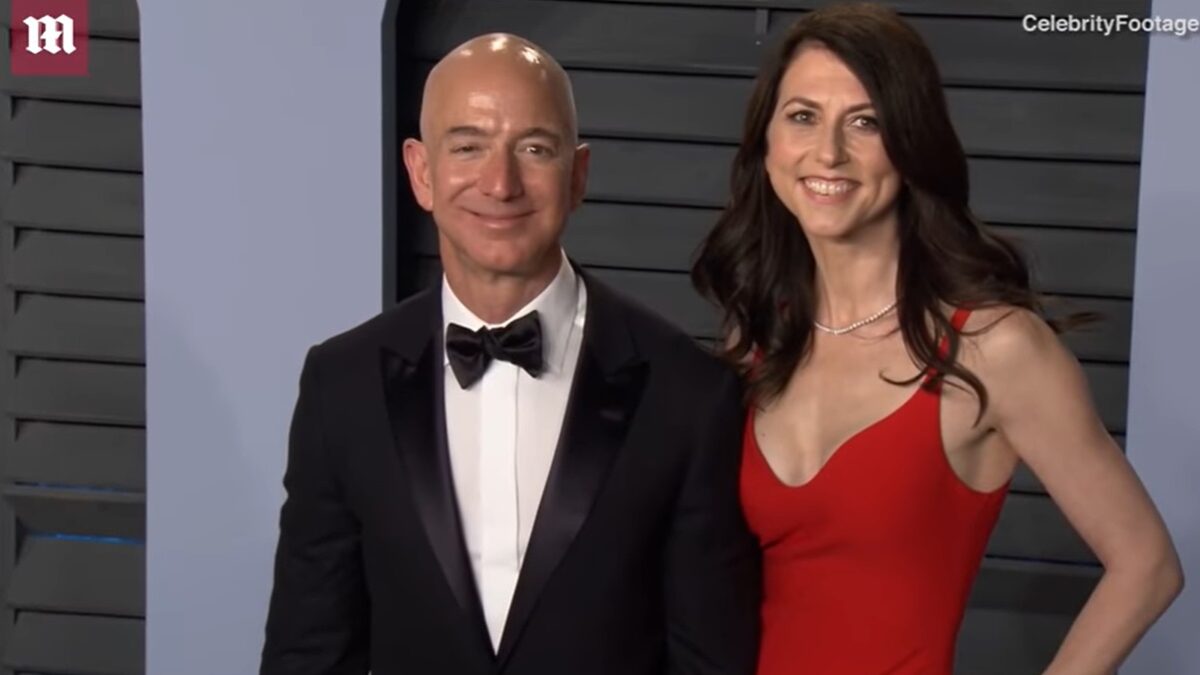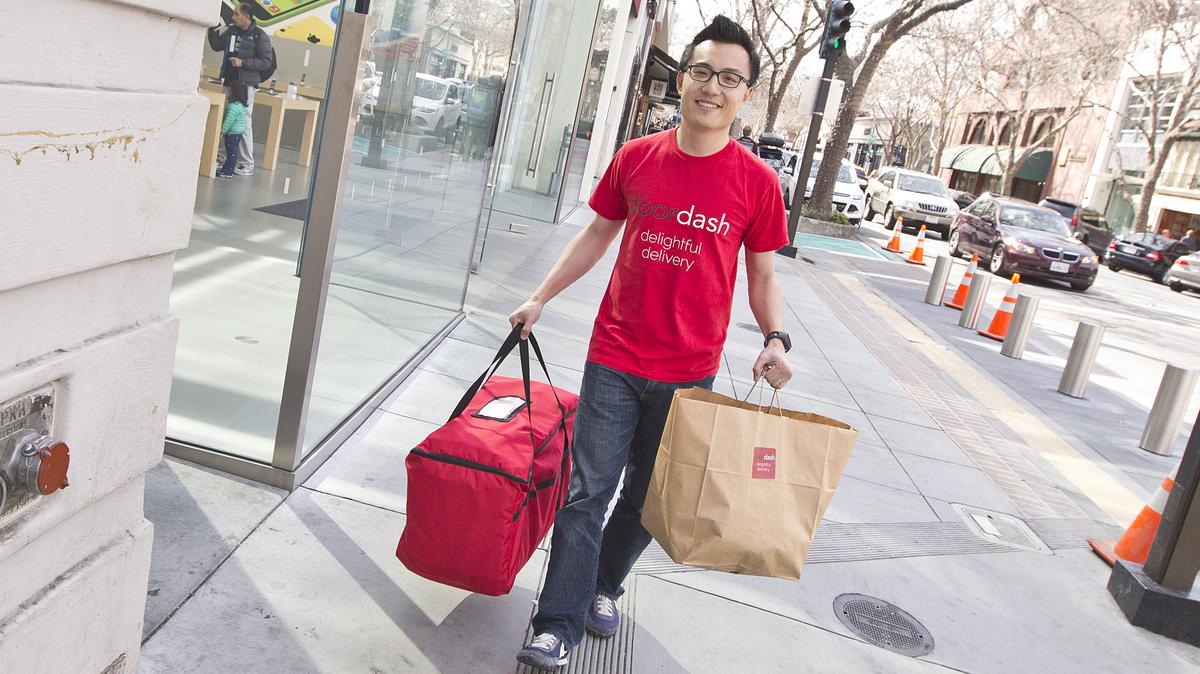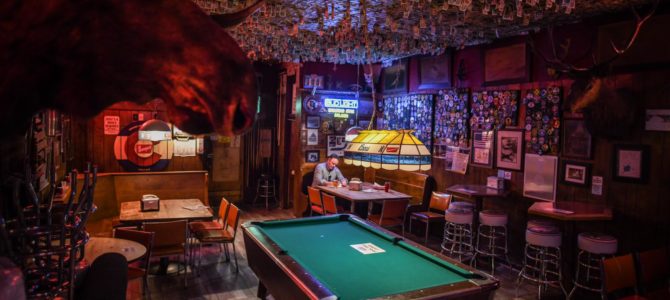
The story below is the third in a series on America’s small businesses, their struggles under the shutdowns, and what they’re doing to survive. Over two weeks, The Federalist is traveling the country to tell more stories like this one.
HUNTSVILLE, UTAH — Across the Wasatch mountains from the county seat of Ogden, in a tony country neighborhood by the Pineview Reservoir, and around the corner from a Mormon church, sits the Shooting Star Saloon.
Now the home of national brands like High West Distillery, Utah isn’t known for an historic tolerance of strong drink, but with its claim to be “the oldest continuously operating saloon west of the Mississippi,” this little bar just an hour’s drive north of Salt Lake City stands out.
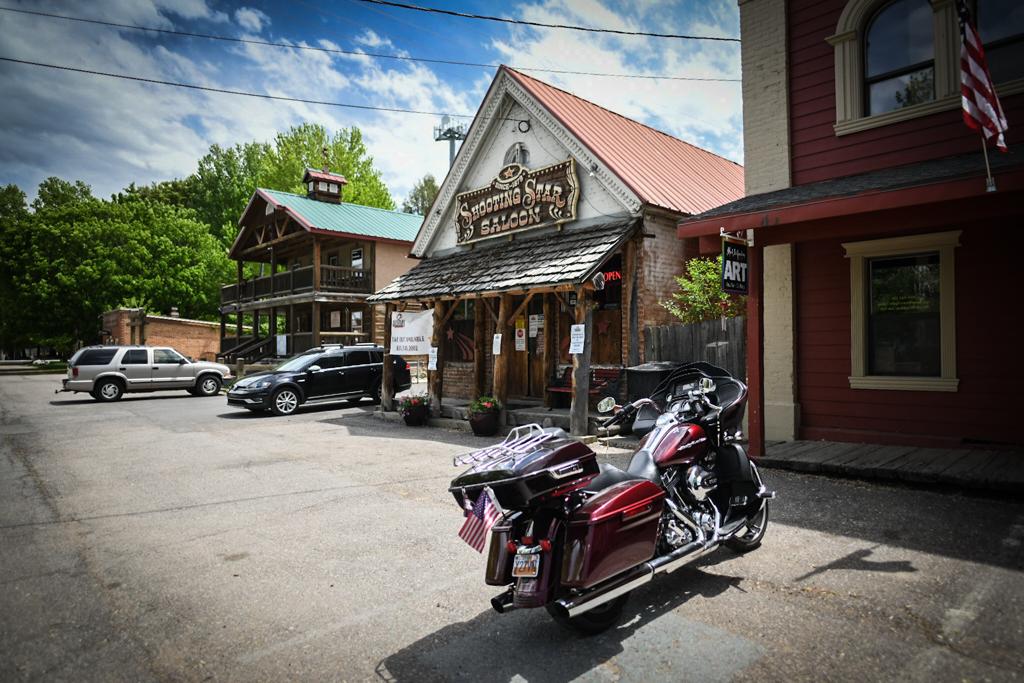
Starting life before there was a town as four walls and some dry goods for fur trappers, it served its first beer just 19 years after the town was founded and near-half a century before it was incorporated — smack dab in the middle of America’s first experiment in killing our bars.
Hank Williams is moaning his 1949 hit “I’m So Lonesome I Could Cry,” high and mournful from the old quarter-a-song jukebox when we step off the sunny porch and into the neon light.
The silence of a falling star
Lights up a purple sky
And as I wonder where you are
I’m so lonesome I could cry
The Shooting Star is something you won’t find out east: A Coors bar. And one that’s playing Hank. It’s going to be tough to ever leave.
The slow-moving dog gives us a sniff and we check out fine. “Grab a seat wherever you like,” the bartender tells us, nodding past the closed bar and toward the tables. Scott, an old biker with a white beard growing down his chest, shows an unconvinced pup he did indeed finish all his food, but lets her lick the Styrofoam box to verify his story.
It’s cash-only — has been long as the owner, Leslie Sutter, 53, can remember — and when we grab a table in the corner a young Marine is having trouble with his ATM card. “It’s not working,” he tells the server, embarrassed as all hell in front of his date. Over his protests, she tells him not to worry about it — they’ll settle up next time he’s in.
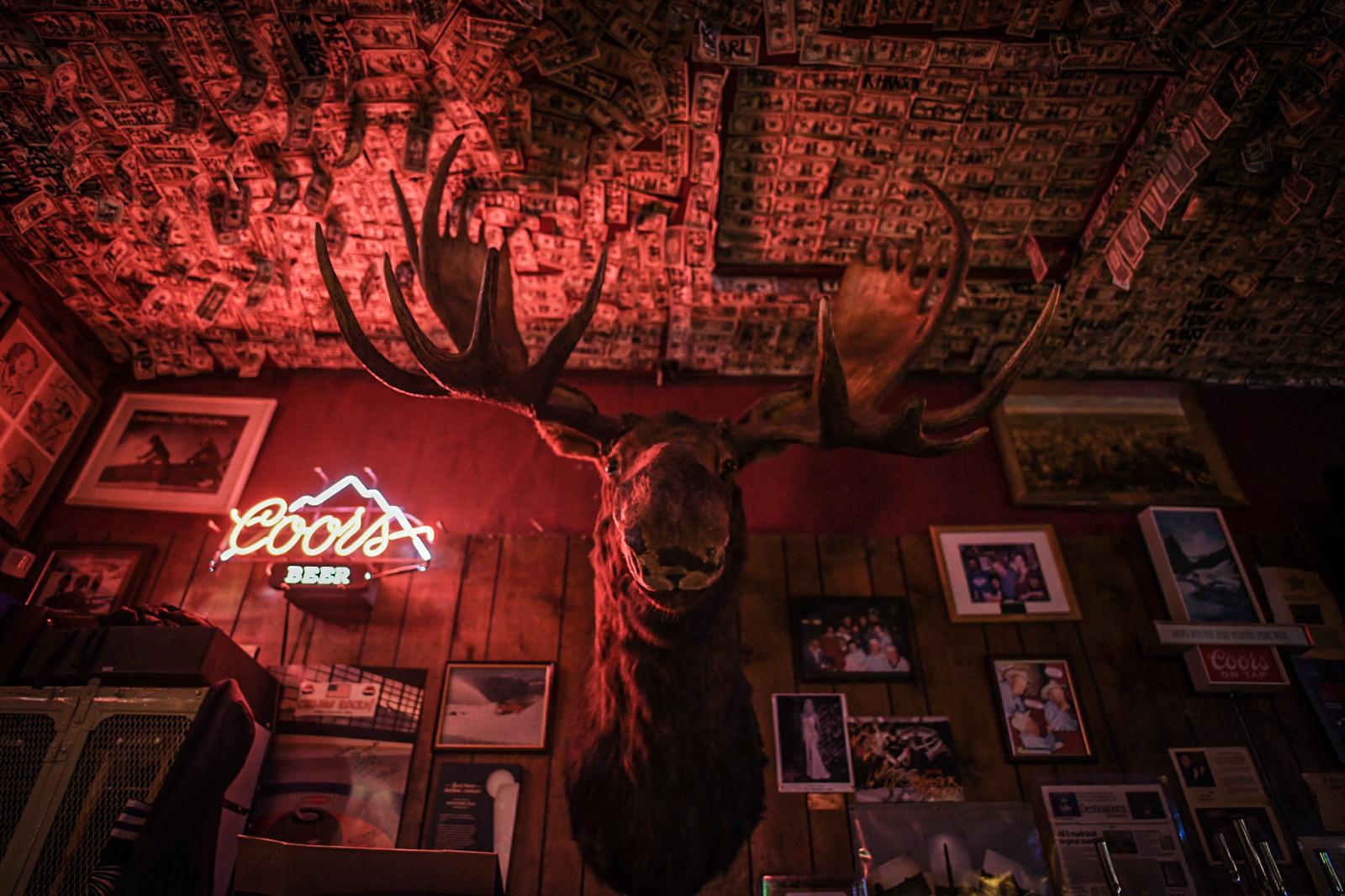
The bills are piled high, money is just beginning to trickle back into the economy, and they finally opened in-house dining after more than two months, but inside these doors it’s a community.
The young man leaves the money he’s got. Leslie doesn’t know him, but you can be sure he’ll be back. People are loyal to this bar, and the bar is loyal to them. “I can’t tell you the amount of people who have walked in and said, ‘Here’s $100,” she tells me, beaming. “Just do what you need to do with it.”
“Walls went up in the 1850s,” she says. “Was literally a trapping and trading post for mountain men in the area until 1879. When the town got big enough they moved the dry goods next door and this became a saloon ever since then, including the years of Prohibition.”
“The way that happened was the sheriff was in Ogden, so he either came up by mule or by rail,” she smiles, mischief in her eyes. “They knew he was coming. Sometimes he would arrest the owner, his wife would come over and open the bar back up. So that’s why we’ve kind of had a rebellious spirit.”
While this round, in the age of the automobile, they’ve had to close their doors, it’s a spirit that’s kept them going through the Utah governor’s coronavirus shutdown. And it’s the one that inspired the small staff — all lifers — to tell Leslie they’d work for free if it’s needed to keep their saloon alive — not unlike Leslie did years before to show the old man she was a worthy purchaser of his and his wife’s bar.
She’s managed to keep every one of them on payroll, where she’s always paid a full salary instead of the tip-compensation models pursued by most others. “Amy and Barbara,” she proudly tells us, “have both been here over 30 years.”
At the urging of a friend, Leslie set up an IndieGoGo page that allows the neighborhood to donate $12 for a future pint, get a t-shirt, an off-road canyon tour with a local guide company, a bar tab and night at the charming bed & breakfast across the street, even your own after-hours keg party for 20. The response has been incredible, with 258 people contributing nearly $19,000 in just one month.
“We have two employees who are older, who are a little compromised health-wise. … In fact she’s right there behind you,” she says, pointing to a picture of a group of NASA engineers in their blue jumpsuits. “She’s literally a rocket scientist, she holds patents on the space shuttle. She’s worked here her whole life… This is kind of how she unwinds.”
“Well I said to her, ‘Honey, your job is to stay home, our job is to be here. We’re all doing whatever we can, so you stay home.’ … Because we’re all doing our part. And so everybody who says ‘Here’s $100,’ that’s nice, you know. We do this because that’s how businesses like this, especially in rural areas, work.”
“I need a fence and a call out to the kids in this neighborhood and they’ll be here like that. ‘What do you need? Do you need drill? Do you need this? I’ve got this, I’ve got that. It’s still the Wild West in some ways. We’ve had people lined up out there asking, ‘Are you open yet? Can we help you out? What can we do?'”
“I’ve got a neighbor down the road who’s never put in a garden. And she said, ‘If you run low on this or that, I’m gonna have a garden this year and we’ll take care of whatever you need because we get tomatoes.”
Farm-fresh tomatoes, she says, are just one of the special touches on old-timey bacon cheeseburgers so delicious they sparked in me burger reawakening. There will be no more fat, bistro-style burgers on my grill.
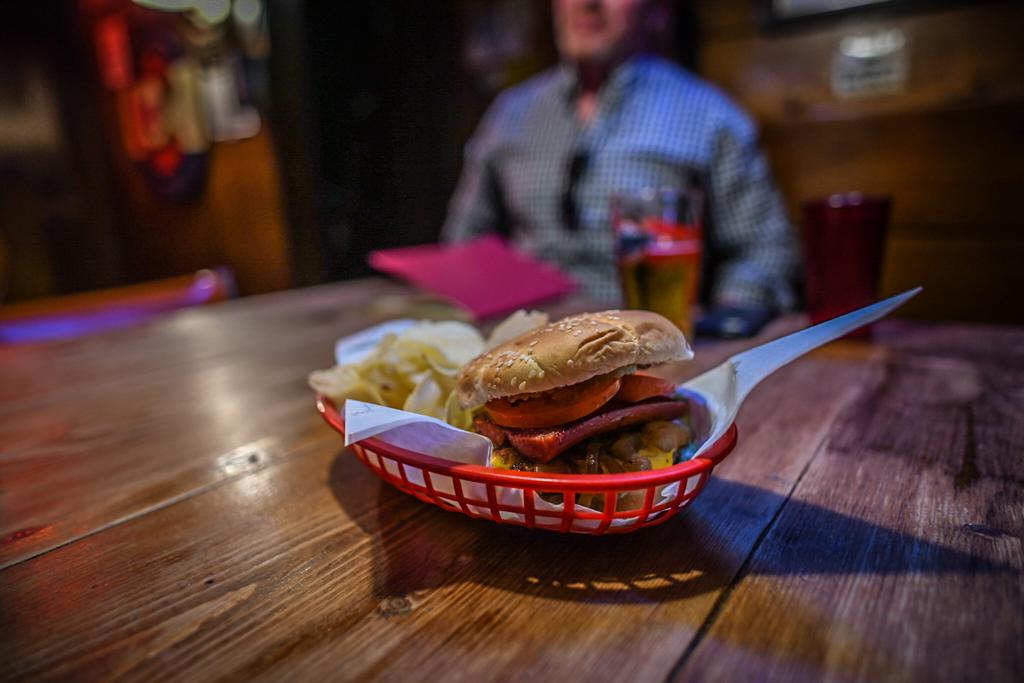
The community is a godsend: Leslie’s had no luck with the Senate’s Paycheck Protection Program through her Utah credit union. “We can’t even get a phone call,” she says, wearing a matter-of-fact expression and shaking her head. It’s a problem for small businesses across the country, many of which don’t share in the blessings of a small, wealthy, one-bar town.
The Shooting Star is a country bar, and it’s a military bar. Photos and gifts from soldiers, Marines, seamen, and airmen cover the walls. In 2003, one bomb sent Saddam’s way bore the bar’s friendly greeting. Hill Air Force Base sits across the mountain, its fighter planes plying the clear, blue, springtime skies above the Great Salt Lake.
The jukebox, underneath a ceiling one regular estimates has $14,000 in signed $1 bills stapled to it, features Willie, Johnny, Merle, Loretta Lynn, Patsy Cline, Charlie Pride, and the U.S. Navy Band’s rendition of “The National Anthem.” When they get a new commander, the airmen bring him by and Leslie lets them know he and his family can consider this their home. Some time later, airmen will fondly replace the old commander’s photograph with the new one in its place of honor — the base of the men’s toilet.
The town they sit in wasn’t always so well-off. It used to be farmers and government employees from Ogden’s massive IRS office. Today, farmers and ranchers live alongside big new homes, and nearly every house, from a few hundred thousand to over a million dollars, has hard-working trucks parked in front of it.
“We have cowboys come in, they’ve got spurs on, they’ve been out on the horses moving a herd, that is still very much who we are here,” Leslie says. “I’ve got trappers that come in. We’ve got a guy who runs an outfit just up the road, and after they’ve been up on the mountain three or four days, they’ve caught either a cat or they’re out hunting an elk, they come down, they have their burgers again. That’s how they close it out.”
“And then we have the kayakers or the ski crowd coming off Powder Mountain. There’s a group of entrepreneurs, a lot of them are what they call trust-funders. You go from that to the people still running cattle and still working every day in the dirt, doing what they need to do.”
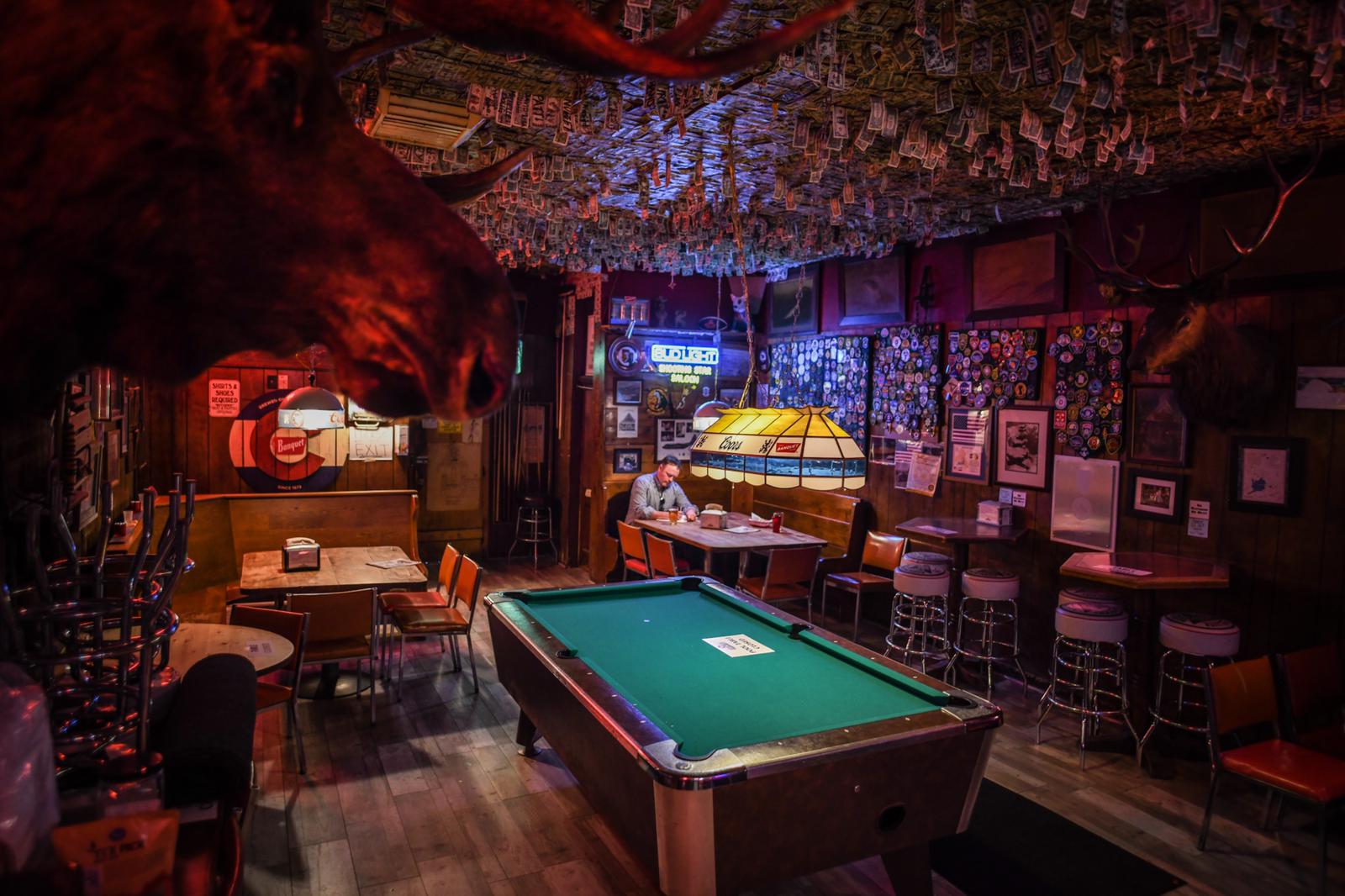
Scott wanders over, shy of the camera, to say goodbye. “Look, here’s trouble!” one woman had yelled when she’d seen him half an hour before. “Two days in a row?”
“I missed yesterday!” he’d protested. Leslie had sat down to catch up, closing by letting him know he didn’t owe a dime for his lunch. His protests fell on deaf ears.
“I’mma slap you,” he says as gently as that can be said, using the phrase as a kind of thank you only an old tough can manage.
“I believe you,” she replies — but she clearly doesn’t.
Leslie moved to the valley 25 years ago. She’d run a foster care agency out of Salt Lake City, but had had enough.
“I literally quit the day the state cut the rates for foster parents again and I realized it cost me more to kennel my dogs than it did to be a foster parent,” she says, looking back. “I just quit. I didn’t retire. I just went, ‘I can’t do it, because I value these people but there’s no benefit to them to do it — they’re getting the hell beat out of them by these kids who have had rough lives, and I pay more to put my dogs in a kennel to go on vacation. And I just tapped out.”
Celebrating her birthday weekend at the Shooting Star shortly after, she was sending a picture to her sisters in California when Heidi Posnien, the owner, said she and John were getting too old to run the place. That was the weekend, and the bar was closed Monday and Tuesday. On Wednesday morning, Leslie was waiting at the door to buy it.
Heidi told her she’d better talk to her husband, who wouldn’t be in for four or five hours, but in he strode. Leslie told him her intentions and he told her to get in line behind all the others.
“‘Let me tell you how I’m different,'” she answered. “‘I’ll work for you for free. For as long as it takes for you to know I’m the right person to sell this bar to. When you know, we’ll make a deal,’ I said. We did that. That was 11 years ago.”
“Right in the middle of the crash, whatever that one was.”
Leslie had never worked in a bar or restaurant, but she laughs that work in mental health trained her just fine. She didn’t have the cash on hand to buy it outright, though, and John, whose passing six years ago at age 76 was marked with a celebration of friends at the saloon, hadn’t kept any books.
“He just ran it as a cash business day to day so nobody’s going to give me a loan on it,” she tells me. “Took out a second [mortgage] on my house but I never regretted it. My worst day here — everything breaks, the fridge breaks, the stove breaks, oven catches fire or whatever — it’s better than my best in my house.”
In the hard months she was takeout only and the stores were ransacked, she couldn’t get the basics like sanitizer and toilet paper she needed to run her business. Her pleas to places she’d been a longtime customer, like Costco and Sam’s Club, had no pull. Once again, the town stepped up.
“You go to your local community and every time they’ve showed up for me. Five Wives Vodka down in Ogden switched over from making vodka to making hand sanitizer within weeks of this all happening, so guess where I got my sanitizer.”
Golden Beverage, her Coors supplier, has been another hero, checking in on what she needs and how they can help.
The country grocer, who’s been working nonstop to keep the town stocked, would put essential items under the counter for her when new shoppers started streaming out of the cities looking for essentials. “The owners there, their staff, killed themselves cleaning, meeting the demands of people, taking care of our seniors, walking stuff out to the car for the folks that are too afraid to come in.”
Learning who has your back when it all comes down has been an essential lesson for small and large business owners alike across this country. While C.R. England’s truckers kept commerce moving amid shutdown restaurants and crowded markets, T.J. England, the company’s chief legal officer, tells The Federalist Kraft would feed drivers making deliveries to make sure they’d had a meal. Others, he hints, were less than helpful. It makes a big difference, and people won’t forget it.
“It becomes really clear who has your back,” Leslie says, “and who doesn’t.”
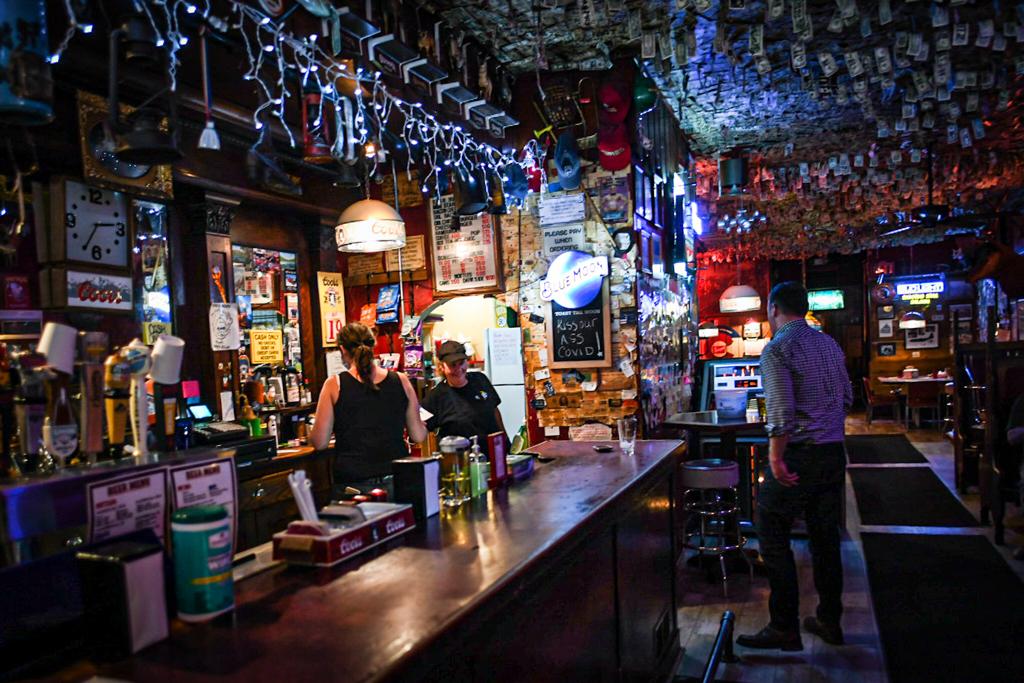
But nothing is easy right now, and she’s had to use her credit cards to keep going. “Don’t get me wrong,” she admits, “it does weigh heavy. Some nights I lay up at night thinking how am I going to cross this to rob Peter to pay Paul. I’ve always been a rob-Peter-to-pay-Paul kind of gal.”
“I’ve worked a lot more than I usually do. This last week, I’ve been here six days in a row, doubles each time. One day I left the house at 7 a.m., I got into bed at 11:30, and I had been on my feet all day. I’m 53 years old, and the next morning I was stiff. And let’s go again. That is tough.”
“Everybody’s struggling in their own right, and everybody’s getting by,” she says. “To me, it personifies who we are that we’re always going to help our neighbors. The goodness of people has always been something. I am as good as everything that’s ever been given to me, but who cares how it helps, it just keeps going. It’s that reciprocal thing.”
“No matter what this will not close, because honest to God, my employees have told me, ‘We’ll work for free if we have to.’ This isn’t going to close, this isn’t going to be compromised.”
“I know,” she beams, a rare happy story in a sea of restaurant bankruptcies, “lucky girl.”



